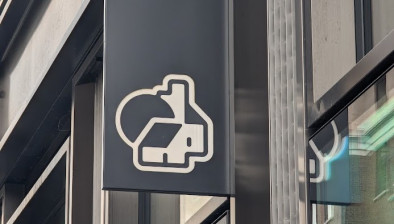Nationwide boosts interest-free green loans to £20,000

Nationwide Building Society has increased its interest-free green loan offering from £15,000 to £20,000 to encourage homeowners to make energy-efficient improvements.
The 0% Green Additional Borrowing products, available to existing Nationwide mortgage customers, need to be spent on improving a property’s energy efficiency, including upgrades such as solar panels, insulation, and heat pumps.
The loans will enable borrowing between £5,000 and £20,000 up to a maximum of 90% Loan-to-Value (LTV) across a two or five-year term.
Nationwide begun offering green borrowing at 0% in June 2023, with the maximum limit set at £15,000. However, take-up has been very low, with just 1900 applications completed since launch until the end of September 2024.
At the same time, Nationwide is also removing a requirement for new customers to wait six months before becoming eligible to apply for the loan. It hopes that by making the product even more attractive and by removing barriers to access more people will be encouraged to apply.
The boost to the product comes as UK’s biggest building society launches a report entitled How low-cost finance supports the greening of UK homes, which sets out the actions needed to encourage home decarbonisation across the UK. The UK’s 28 million homes are significant contributors to greenhouse gas emissions, accounting for approximately 15% of the national total, which is why retrofitting is such a critical part of the UK’s journey towards the UK’s 2050 net-zero ambition.
Research findings
As part of the report, Nationwide conducted research amongst its mortgage customers who had either taken the 0% borrowing or had not yet done so. It uncovers eight findings, which Nationwide believes need to be considered when determining actions that government, businesses and banks and building societies can take to encourage home decarbonisation (pages 8-9 of the report):
- Customers believe responsibility for funding energy efficiency lies primarily with government.
- There are numerous and complex barriers to retrofitting and finance is just one of them.
- Many homeowners judge retrofit success by a reduction in bills.
- Finance sits too late in the retrofit journey to drive any new demand – low-cost finance is just one component.
- 0% borrowing appeals to those already interested and planning a retrofit change.
- The vast majority of 0% Green Additional Borrowing applications come from customers going direct to Nationwide because the minimal fees on small borrowing amounts drives very little commercial return for brokers.
- Homeowners would value more support in identifying tradespeople.
- Well-known technologies are being installed to fix perceived issues.
Nationwide is calling on the government to do more by taking decisive action in promoting the greening of homes, by setting out a list of recommendations aimed at driving demand for home improvement measures (see report, pages 10-11). Recommendations include:
- More public awareness campaigns showing people the benefits of retrofitting and linking to information and advice.
- Create a National Retrofit Hub, which would support consumers from the beginning to the end of the retrofit journey.
- Energy companies to highlight benefits to customers where a retrofit need exists.
- Further collaboration between lenders and government, to support customers who are able to pay for improvements.
- Incentivise banks and building societies to offer their mortgage customers low-cost additional borrowing for retrofits.
Graham Lloyd, Nationwide’s head of strategy and sustainability, said: “We believe the UK’s 2050 net-zero target can only be met through incentivising people to invest in their homes.
“As a mutual, we have chosen to make a difference, which is why we’re making it as easy and attractive as possible for our mortgage customers to retrofit their properties.
“But much more needs to be done and we need both the government and businesses to step in and step up to create meaningful progress. This cannot continue to be kicked down the road, as it has been for some years now.”













